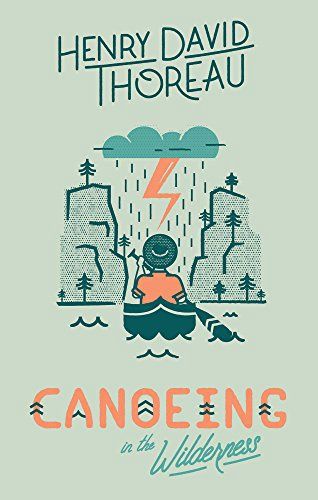
Canoeing in the Wilderness by Henry David Thoreau
Thoreau’s famous trip through the Maine Woods reissued to entertain, encourage, and inspire contemporary naturalists.
Thoreau paints the woods and waterways of Maine with the same loving hand that described his Walden home, and entertains with the successes and difficulties of the trip and the quirks of his companion and their guide, Joseph Polis, told with a wit and insight that can only be found in Thoreau.
Henry David Thoreau was an American author, poet, abolitionist, naturalist, tax resister, development critic, surveyor, historian, philosopher and leading transcendentalist. His writings on natural history and philosophy have become two sources of modern-day environmentalism.
At the time Thoreau made this wilderness canoe trip he was forty years old. The record of the journey is the latter half of his The Maine Woods, which is perhaps the finest idyl of the forest ever written. It is particularly charming in its blending of meditative and poetic fancies with the minute description of the voyager's experiences. The chief attraction that inspired Thoreau to make the trip was the primitiveness of the region. Here was a vast tract of almost virgin woodland, peopled only with a few loggers and pioneer farmers, Indians, and wild animals.
Henry David Thoreau was an American author, poet, abolitionist, naturalist, tax resister, development critic, surveyor, historian, philosopher and leading transcendentalist. His writings on natural history and philosophy have become two sources of modern-day environmentalism.



